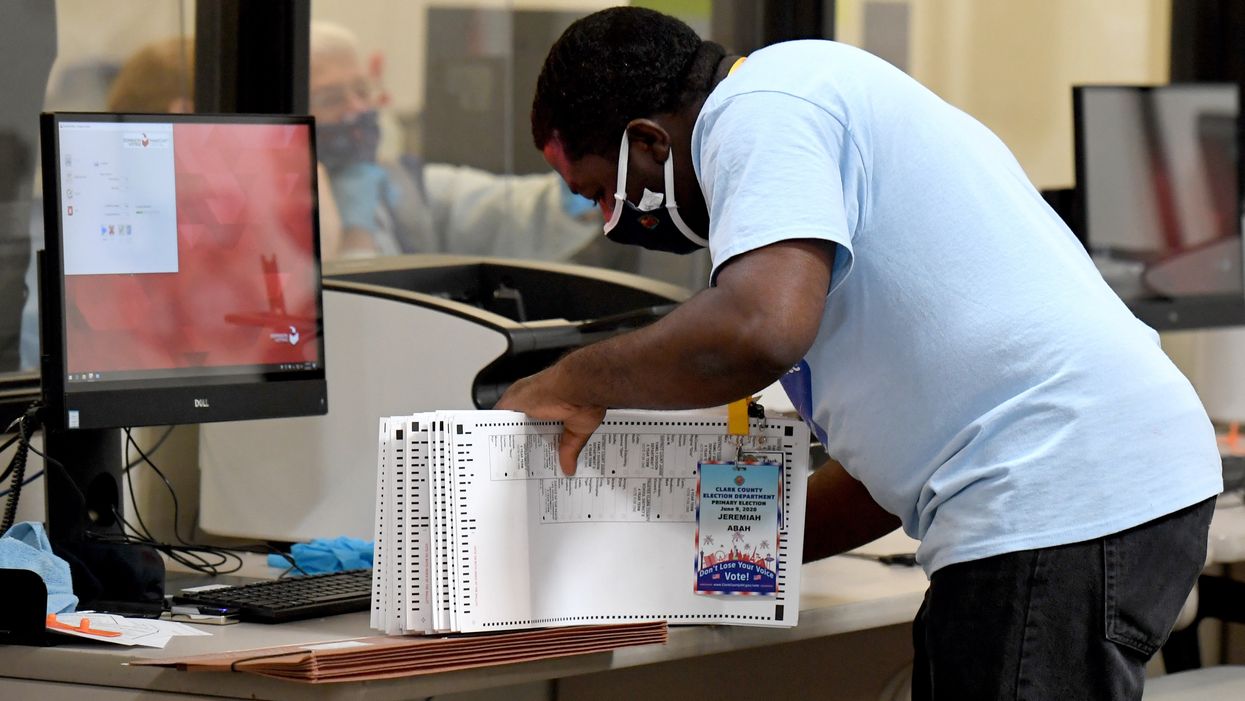Molineaux is the co-founder and executive director of Bridge Alliance, a coalition of more than 100 civic reform groups. (Disclosure: The Bridge Alliance Education Fund is a funder of The Fulcrum.)
This is a call to people who love our country more than they hate their political opponents. It is our duty and our honor to put country before party.
Voting in the usual manner this November will likely be difficult because of the coronavirus. As a result, many people are voicing concerns about the integrity of the presidential election. There is a huge amount of spin and swirl about vote-by-mail, voter fraud, voter intimidation, disinformation and other tactics that are designed either to sway voters to vote (or not vote) or to cast doubt on the election outcome.
We must do everything in our power to ensure the reality and perception of a fair election.
As we have been lulled into complacency as consumers of politics, we have allowed the marketers to divide us. This divide harms us, our communities and our country. We need to be engaged and active citizens who demand more. Let's start with working to create a credible election process trusted by all.
Each one of us can opt out of the "war" between the presidential candidates and pledge our sacred honor to be the eyes, ears and conscience of our election process this fall. Our election officials need assistance in the form of election workers — some paid but largely volunteers. By becoming a good-faith election worker, you can help build trust in our election process and in each other. We can commit to each other that we will trust and verify the election.
Here are two ways you can do your part to build a safe election.
There will be a dramatic expansion of absentee voting and voting by mail this fall. Over the summer, local elected officials will plan how to process these ballots in a way that's healthy and safe. We can be the volunteers who assist election officials in mailing absentee applications, safely and accurately processing ballots, ensuring compliance with state law, and matching names and signatures with the voter roll.
This will create the system of checks and balances within our local elections offices to ensure the security and integrity of every vote and ensure that every legitimate vote is counted.
And in jurisdictions where people will still vote in person, we can encourage people who are less at risk to become poll workers, in Covid-19-safe polling locations.
Who can volunteer, observe and work in elections offices and polling places varies by state. You can find yours here with directions of how to start.
Nothing is more urgent. The integrity of our democracy is dependent on how well the voting process is administered this fall. We can ensure the integrity of the election if we do it together in a nonpartisan and/or bipartisan effort to ensure optimal vote-by-mail and safe voting at the polls this November. The best way to ensure the election is credible is to roll up your sleeves and help out.




















